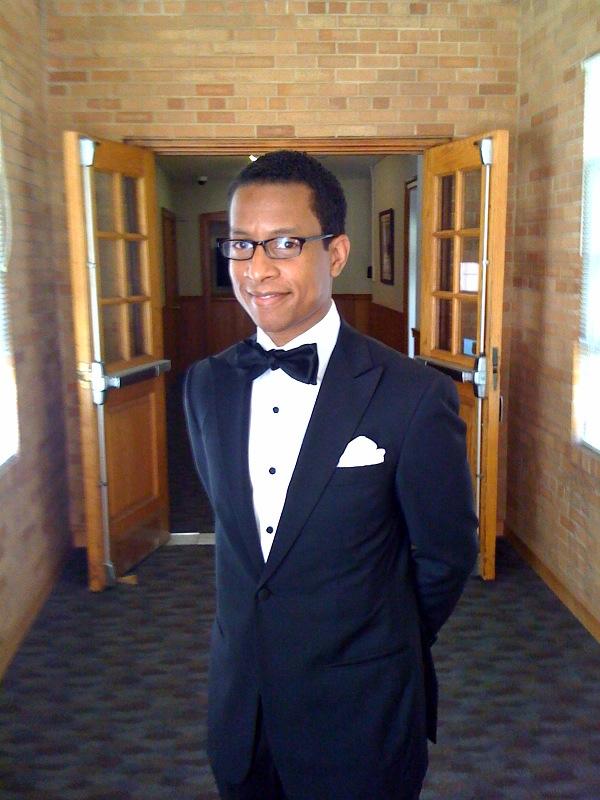Kendrick Ashton, JD/MBA ’04: Launched to Reach High Goals by Important Law School Lesson

Growing up in a working-class Washington, D.C., neighborhood, Kendrick Ashton, JD/MBA ’04, set some goals for himself. Among them were acquiring a top-notch education, making the world a better place—and playing Division I college football. He achieved those goals, though not without challenges that might have waylaid a lesser person.
“My mother and my grandfather wanted the best for me, and they wanted me to help others achieve their best, too,” he recalls. His grandfather started teaching him to read when Ashton was just two years old, and many afternoons in his youth the two of them watched current affairs television programs together. “My grandfather and I have been having a 30-year-long conversation about what’s going on in the world, why, and what it means,” Ashton says.
He wasn’t fully football-sized when he finished high school, so he attended a postgraduate year at a military academy to build himself up, becoming big and skilled enough to be recruited as a cornerback by more than 30 schools. Choosing William and Mary, he was a starter throughout his first two seasons, leading the team in tackles on several occasions.
During his sophomore season, he began experiencing severe pain from cramping muscles in his esophagus, and later that year he suddenly found himself unable to swallow food at all. Eventually doctors discovered that he had a rare condition, achalasia, in which the esophageal muscles don’t properly move food from the throat to the stomach. “I haven’t had a normal eating experience since 1995,” he reports, although a medical procedure performed later substantially improved the quality of his life. Despite substantial weight loss and discomfort caused by the achalasia, he continued his college football career, earning all-conference honors.
When it came to making the world a better place, he showed similar determination. In 2002 he joined with a group of Chicago civic leaders to apply for a charter for a new school that would prepare young African-American men for academic success and civic leadership. The application was denied. The next year the group applied again and was again turned down. The team persisted, and Urban Prep opened in 2006. Today it has three Chicago campuses serving 1,300 young men; at full capacity it will serve 1,800. One hundred percent of its graduates have been admitted to college. Ashton is still one of its trustees; he also currently serves many other civic-betterment organizations, including serving as board chair of the Dance Theatre of Harlem and as a director of the Carson Scholars Fund, which awards scholarships to students who demonstrate high levels of academic excellence and community service.
A great education was one of his personal goals, and he particularly encountered that at the Law School. “I arrived at the Law School thinking I was a pretty smart kid who knew how the world worked. Beginning in my first class on my first day, I got one heck of a wake-up call,” Ashton says. “I got re-educated—truly educated—in a way that was transformative then and still affects everything I do. I’m forever indebted to the Law School and to professors Baird, Picker, Strauss, Sykes, and Landes, to name just a few.”
After beginning his career as an investment banker at Goldman Sachs, he became a founding member of boutique investment bank Perella Weinberg Partners, where he focuses on mergers and acquisitions. He served as the firm’s chief operating officer from December 2009 until April of this year. He lives in Manhattan with his wife, Mashea Ashton, who is CEO of a foundation supporting charter schools in Newark, New Jersey, and their twins, Dylan Claudia and Kendrick “Duke” Foster III.
And he has new goals now, loftier versions of the commitments to accomplishment and contribution he has embraced since his youth. “With a wonderful family, a great firm I hope to be with for many years, and so many opportunities to contribute, I feel blessed,” he says. “But there’s another lesson I learned at the Law School, which is that who you are today is just the beginning of what you can become. I’m looking forward to and preparing myself for what comes next.”